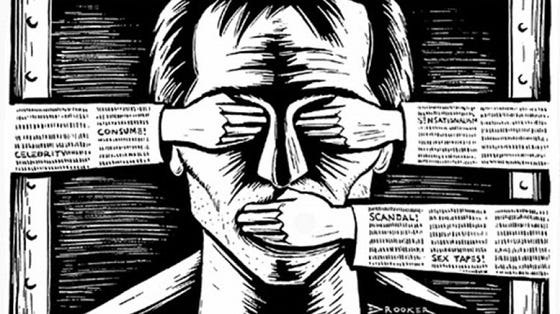Over the last month we have been given a glimpse of just how much power Big Tech has gained over our society. In the aftermath of the Capitol Hill riot, the corporations which have become the de facto gatekeepers of the internet acted with remarkable unanimity in deplatforming those they deemed to be responsible for the outbreak of violence… including no less than the sitting President of the United States.
For the better part of a century, POTUS has been widely considered to be the most powerful person on the planet. Yet he was summarily silenced, without a fight and without any recourse whatsoever, by a handful of corporate executives.
Of course, people are deeply divided as to whether the actions of Big Tech were justified. But everyone, I think, can agree that they were wholly unprecedented. Throughout human history there have been very few authorities capable of systematically suppressing freedom of speech on a societal level: essentially, state authority and religious authority. To this short list must now be added corporate authority.
At least in part because until a short time ago such power was scarcely conceivable, there exist virtually no checks against it at all. The First Amendment has no power over corporations. The concept of due process is utterly irrelevant. Companies can do what they please with the products they proffer.
The display of such unchecked power over even the chief executive of the most powerful government in the history of the world has therefore caused a good deal of consternation among many, including prominent heads of state who are perhaps realizing that their authority is somewhat less unrivaled than they had supposed.
And — to come to the reason why a monk is bringing up such a subject — many Christians are becoming increasingly wary that the enormous power now wielded by Big Tech may eventually be brought to bear against them as well. It is hardly a secret that Silicon Valley is not exactly well-disposed toward those expressing support of traditional Christian morality (including even the corporations most vocal in their support of internet freedom). Nor is the deplatforming of Christian voices by such corporations merely a theoretical concern; some Christian publications have already been banned by industry-leading providers such as MailChimp.
If even the ability of the President of the United States to communicate with his constituents is at the mercy of monopolistic corporations — in many important ways unaccountable to anything other than their own bottom line — what kind of defense can ordinary rank-and-file Christians possibly hope to muster?
Given how drastically dependent our society has become on Big Tech (I write these words sitting in an airport, having just witnessed a woman in an Amish head-covering walk past me with her eyes glued to her smartphone), it is easy to forget that we were able to get along without them from the dawn of human history up until about ten years ago. Ten years is a long time (especially these days), but not that long a time. The inescapable truth is that Big Tech has gained such immense power over us for one reason only: because we chose to give it to them. Nay, rather: because we chose to sell it to them.
There is a saying of the advertising age in which we live: “When the product is free, you are the product.” We have sold our attention, our privacy, and vast untold quantities of our time to advertising firms, in exchange for their flashing toys.
So if we don’t want them to have such power over us, there is one solution which is really quite simple: we can just stop selling it to them. Even if it means giving up some of their toys.
If we’re honest with ourselves, we don’t actually need Facebook or Twitter or YouTube. In fact, our lives would almost certainly improve without them.
As rapidly as our society is changing — and as dystopian as it is beginning to seem in so many ways — even so, nobody is anywhere close to stopping us from speaking the truth of Christ to the real, flesh-and-blood human beings in our lives. And though we so often ignore them in favor of our screens, they are still right there. They are, Lord willing, not going anywhere anytime soon.
Let’s try to build our lives around them, instead of the gadgets to which we have been busily selling our souls.




